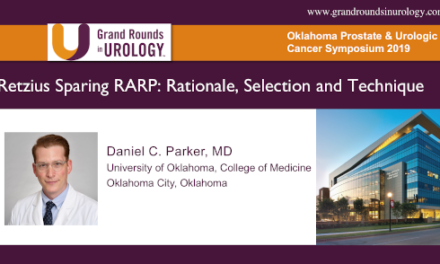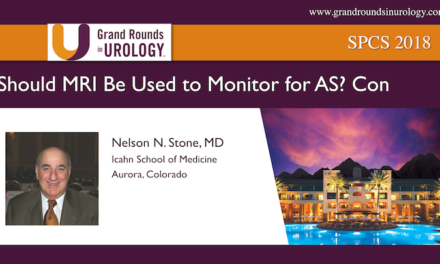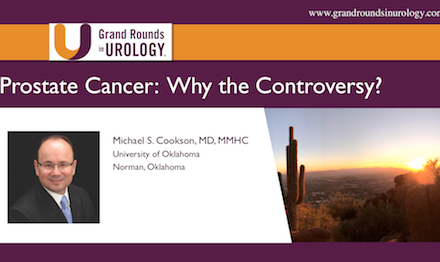Thomas J. Polascik, MD, FACS, presented “Focal Cryosurgery: Outcomes and Observations” during the 31st International Prostate Cancer Update in July 2021 in Snowbird, Utah.
How to cite: Polascik, Thomas J. “Focal Cryosurgery: Outcomes and Observations.” July 2021. Accessed Oct 2024. https://grandroundsinurology.com/focal-cryosurgery-outcomes-and-observations/
Focal Cryosurgery: Outcomes and Observations
Thomas J. Polascik, MD, FACS, Professor of Surgery at Duke University and Director of Surgical Technology at the Duke Prostate and Urological Cancer Center, discusses focal cryosurgery for prostate cancer and its functional outcomes. He introduces, as a typical example of his patients, the case of a 64-year-old mostly healthy man who is concerned with the side effects of radical prostatectomy. Dr. Polascik describes the 21st century prostate cancer patient and discusses how and why doctors’ recommendations are becoming less influential, especially when it comes to active surveillance. He returns to the case of the 64-year-old man and shows how cryo-probes are used in an overlapping manner to create a kill zone, and then outlines the procedure. Dr. Polascik reviews a study on Vitamin D3 as a sensitizer to cryoablation that found that on post-treatment day 9, freezing with Vitamin D3 has near a 98% reduction in cell repopulation compared to just freezing. He discusses functional outcomes such as high rates of continence, failure-free survival rates of about 75% at 5 years, 100% metastasis-free survival, and no infield recurrence of Gleason grade 2 or higher in anterior gland focal cryoablation. Dr. Polascik concludes with a look at the future of focal cryoablation, highlighting its ability to maintain quality of life, serve as durable cancer control, be pain-free, and support rapid recovery.
About The 31st Annual International Prostate Cancer Update:
The International Prostate Cancer Update (IPCU), founded in 1990, is a multi-day CME conference focused on prostate cancer treatment updates with expert, international faculty. It is led by expert physicians and is designed for urologists, medical oncologists, radiation oncologists, and other healthcare professionals involved in the diagnosis and treatment of prostate cancer. Dr. Polascik delivered this educational activity during the 31st iteration of the meeting in July 2021 in Snowbird, Utah.
ABOUT THE AUTHOR
Thomas J. Polascik, MD, FACS, is Professor of Surgery at Duke University Medical Center and the Director of Surgical Technology at the Duke Prostate and Urological Cancer Center. He is the Founder and Co-Director of the International Symposium on Focal Therapy and Imaging of Prostate and Kidney Cancer, which began at Duke in 2008. Dr. Polascik is the Editor of Imaging and Focal Therapy of Early Prostate Cancer. He is Founder and President of the Focal Therapy Society, as well as Director of Duke’s Society of Urologic Oncology Fellowship Training Program and the Genitourinary Program on Focal Therapy at the Duke Cancer Institute. He is the Medical Director of Duke’s Men’s Health Initiative Screening Event and is a governing member of several medical boards and societies. His clinical and research interests focus on prostate and kidney cancer. He has authored over 350 peer-reviewed manuscripts and book chapters.




